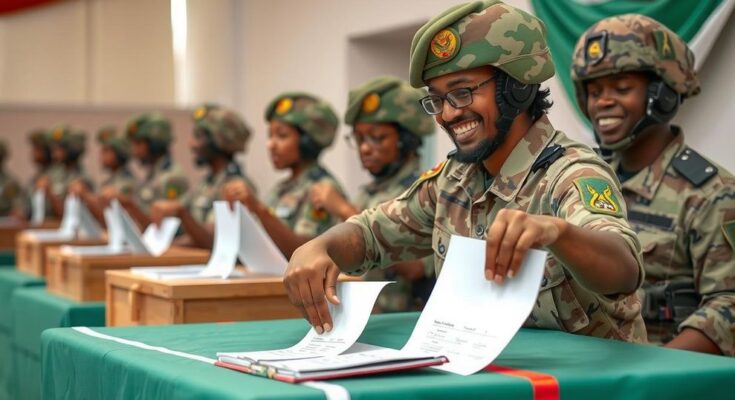Chadians are voting in parliamentary elections that are set to conclude a three-year military transitional period. The election, the first in over a decade, follows a disputed presidential victory by junta leader Mahamat Idriss Deby. Notably, the main opposition has chosen to boycott this electoral process, questioning its legitimacy as the country transitions from military rule.
In N’Djamena, Chad, citizens are participating in parliamentary and regional elections, marking the conclusion of a three-year transitional period after military rule. This significant event follows a controversial presidential election won by the junta leader, Mahamat Idriss Deby, which was purportedly aimed at restoring democratic governance. This election is particularly notable as it is the first parliamentary vote in over a decade, yet the main opposition parties have opted to boycott the process, voicing concerns over its legitimacy. Mahamat Deby’s ascension to power occurred in 2021 after the death of his father, former president Idriss Deby Itno, who had maintained a grip on power for thirty years.
The elections taking place in Chad represent a critical juncture in the country’s political landscape, transitioning from military-led governance towards a potentially democratic framework. Mahamat Idriss Deby, who has faced criticism and challenges to his authority, seeks to consolidate his power following his recent presidential victory. Opposition groups’ decision to boycott the elections underscores ongoing tensions and skepticism regarding the fairness of the electoral process amidst a backdrop of historical political instability in Chad, particularly following decades of authoritarian rule.
The parliamentary elections in Chad signify a pivotal moment as the country attempts to shift away from military control toward establishing a more democratic political environment. However, the boycott by opposition parties raises significant concerns regarding the elections’ legitimacy and the potential for continued political turmoil. The outcome of these elections will be critical in determining the future political landscape of Chad, as it grapples with the legacy of its previous leadership.
Original Source: www.wdrb.com




